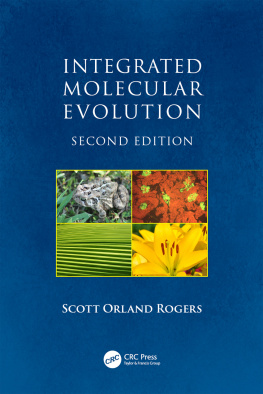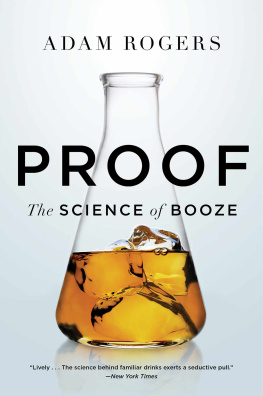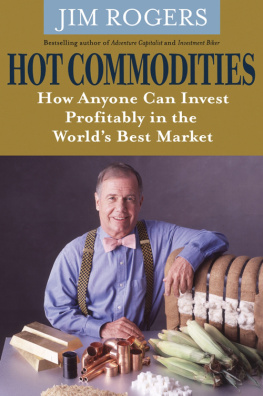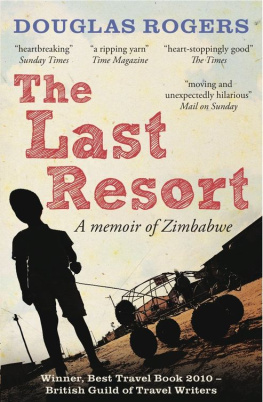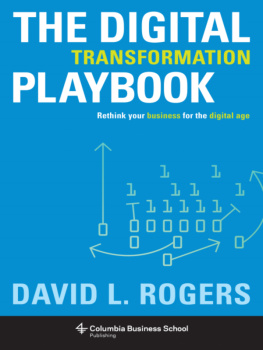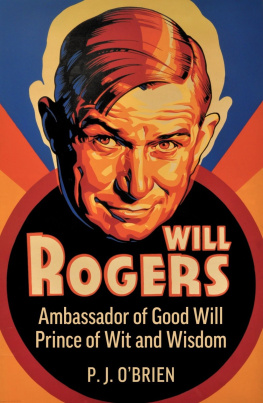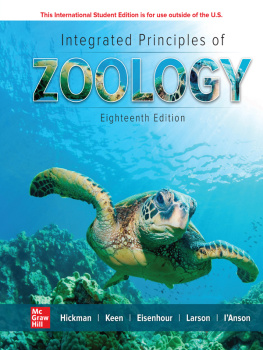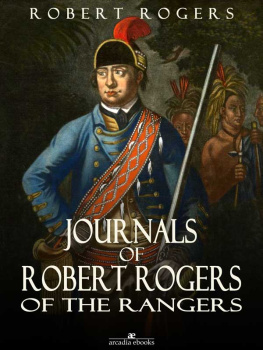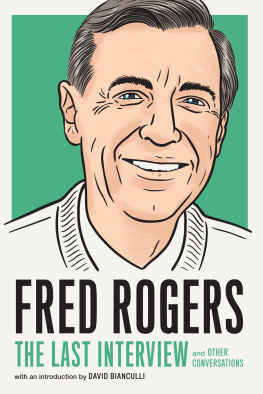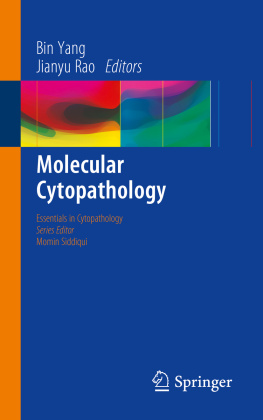Rogers - Integrated molecular evolution
Here you can read online Rogers - Integrated molecular evolution full text of the book (entire story) in english for free. Download pdf and epub, get meaning, cover and reviews about this ebook. year: 2016, publisher: CRC Press, genre: Religion. Description of the work, (preface) as well as reviews are available. Best literature library LitArk.com created for fans of good reading and offers a wide selection of genres:
Romance novel
Science fiction
Adventure
Detective
Science
History
Home and family
Prose
Art
Politics
Computer
Non-fiction
Religion
Business
Children
Humor
Choose a favorite category and find really read worthwhile books. Enjoy immersion in the world of imagination, feel the emotions of the characters or learn something new for yourself, make an fascinating discovery.
Integrated molecular evolution: summary, description and annotation
We offer to read an annotation, description, summary or preface (depends on what the author of the book "Integrated molecular evolution" wrote himself). If you haven't found the necessary information about the book — write in the comments, we will try to find it.
Integrated molecular evolution — read online for free the complete book (whole text) full work
Below is the text of the book, divided by pages. System saving the place of the last page read, allows you to conveniently read the book "Integrated molecular evolution" online for free, without having to search again every time where you left off. Put a bookmark, and you can go to the page where you finished reading at any time.
Font size:
Interval:
Bookmark:

INTEGRATED MOLECULAR EVOLUTION
SECOND EDITION
INTEGRATED MOLECULAR EVOLUTION
SECOND EDITION
SCOTT ORLAND ROGERS

CRC Press
Taylor & Francis Group
6000 Broken Sound Parkway NW, Suite 300
Boca Raton, FL 33487-2742
2017 by Taylor & Francis Group, LLC
CRC Press is an imprint of Taylor & Francis Group, an Informa business
No claim to original U.S. Government works
Printed on acid-free paper
Version Date: 20160204
International Standard Book Number-13: 978-1-4822-3089-5 (Hardback)
This book contains information obtained from authentic and highly regarded sources. Reasonable efforts have been made to publish reliable data and information, but the author and publisher cannot assume responsibility for the validity of all materials or the consequences of their use. The authors and publishers have attempted to trace the copyright holders of all material reproduced in this publication and apologize to copyright holders if permission to publish in this form has not been obtained. If any copyright material has not been acknowledged please write and let us know so we may rectify in any future reprint.
Except as permitted under U.S. Copyright Law, no part of this book may be reprinted, reproduced, transmitted, or utilized in any form by any electronic, mechanical, or other means, now known or hereafter invented, including photocopying, microfilming, and recording, or in any information storage or retrieval system, without written permission from the publishers.
For permission to photocopy or use material electronically from this work, please access www.copyright.com (http://www.copyright.com/) or contact the Copyright Clearance Center, Inc. (CCC), 222 Rosewood Drive, Danvers, MA 01923, 978-750-8400. CCC is a not-for-profit organization that provides licenses and registration for a variety of users. For organizations that have been granted a photocopy license by the CCC, a separate system of payment has been arranged.
Trademark Notice: Product or corporate names may be trademarks or registered trademarks, and are used only for identification and explanation without intent to infringe.
Library of Congress Cataloging-in-Publication Data
Names: Rogers, Scott O., 1953- , author.
Title: Integrated molecular evolution / Scott Orland Rogers.
Description: Second edition. | Boca Raton : Taylor & Francis, 2016. |
Includes bibliographical references and index.
Identifiers: LCCN 2015045976 | ISBN 9781482230895 (alk. paper)
Subjects: | MESH: Evolution, Molecular | Molecular Biology | Genetic Phenomena
Classification: LCC QH325 | NLM QU 475 | DDC 572.8/38--dc23
LC record available at http://lccn.loc.gov/2015045976
Visit the Taylor & Francis Web site at
http://www.taylorandfrancis.com
and the CRC Press Web site at
http://www.crcpress.com
Contents
As with the first edition of this book, it was written with students in mind. It is meant to introduce the major topics of molecular evolution in a way that will encourage students to delve deeper into each of the topics. The book started as a series of notes, overheads, and digital slides that comprised a course in molecular evolution. The course was designed as an integrated approach to this field, for which there was no single textbook available. It draws from concepts in evolution, geology, chemistry, biochemistry, molecular biology, genetics, taxonomy, bioinformatics, various OMICS fields, and, of course, molecular evolution. Because it discusses aspects of each of these disciplines, students with broad backgrounds (as well as those with very focused backgrounds) should be able to grasp the concepts, principles, and details of this book. It presents some of the usual information regarding various aspects of cell function, but also details the variety of mechanisms that have evolved. This has been done to present a broader view of evolution that is meant to show that some processes have been approached in very different ways by the diversity of species during their evolution on Earth.
Although the first edition was organized into 18 chapters, including 197 figures, the second edition has been substantially expanded into 34 chapters, with 413 figures, essentially doubling the size of the first edition. It has been divided into six sections. , Genomes, is a survey of a set of genomes that represents a compendium of some of the important aspects of the evolution of genomes, in general.
presents the common, as well as many of the uncommon, modes of separating chromosomes, from separation of chromosomes in bacteria to mitosis and meiosis in a variety of eukaryotes.
in the first edition.
is focused on the genetic changes and mechanisms in carcinogenesis. Some of the same mechanisms that cause evolutionary changes are the same mechanisms that cause cancer.
, Phylogenomics and Comparative Genomics, explains some of the processes and challenges in using genomic data in genomic studies of evolutionary processes.
The final section, . Part of the additions to this chapter includes details about how the human genome has led to some practical applications of the information.
Scott Orland Rogers
Bowling Green State University, Ohio
I thank my wife Mary, daughter Liz, and son Ben for providing moral support. I could not have written this without their support. I also thank my mother, father, sister, and brother for their support throughout the years. I thank all of my students who always brought up new ideas, questions, papers, and insights, all of which made me think and rethink the ideas presented in this book. Also, thanks to Professor Arnie Bendich (my PhD Major Professor) who provided ideas, papers, enthusiasm, and critical questions about parts of this book. He taught me to think and read critically, deeply, and broadly. Special thanks to Zeynep Koer, Lorena Harris, Amal Abu Almakarem, and Maitreyee Mukerjee for providing useful feedback on several parts of this book. Also, I want to thank the many people who provided feedback on the first edition of this book. The comments were very helpful to formulate and write the second edition. Special thanks to Chuck Crumly at Taylor & Francis Group for the time and energy that he spent assuring that this second edition would be published, and for providing comments, suggestions, and critiques. The book would not have been possible without him. Thanks also to Barbara Norwitz (also at Taylor & Francis Group) for helping to make the first edition of this book a success. Finally, I thank colleagues and students at BGSU for having patience with my frequent and lengthy absences from my office and lab while I was diligently working on this book at home.
Scott Orland Rogers is a professor of molecular biology and evolution at Bowling Green State University, Bowling Green, Ohio. He received his BS (1976) and MS (1980) degrees in biology from the University of Oregon, Eugene; and PhD (1987) in plant molecular biology from the University of Washington, Seattle. He was an assistant professor and associate professor at the State University of New York College of Environmental Science and Forestry, Syracuse, NY, from 1989 through 2001, before moving to BGSU. He has taught courses in biology, botany, cell physiology, molecular biology, molecular genetics, bioinformatics, and molecular evolution. Research in his lab includes studies of microbes and nucleic acids preserved in ice, life in extreme environments, group I introns, molecular microbial phylogenetics, microbial metagenomics/metatranscriptomics, ancient DNA, and plant development.
Font size:
Interval:
Bookmark:
Similar books «Integrated molecular evolution»
Look at similar books to Integrated molecular evolution. We have selected literature similar in name and meaning in the hope of providing readers with more options to find new, interesting, not yet read works.
Discussion, reviews of the book Integrated molecular evolution and just readers' own opinions. Leave your comments, write what you think about the work, its meaning or the main characters. Specify what exactly you liked and what you didn't like, and why you think so.

